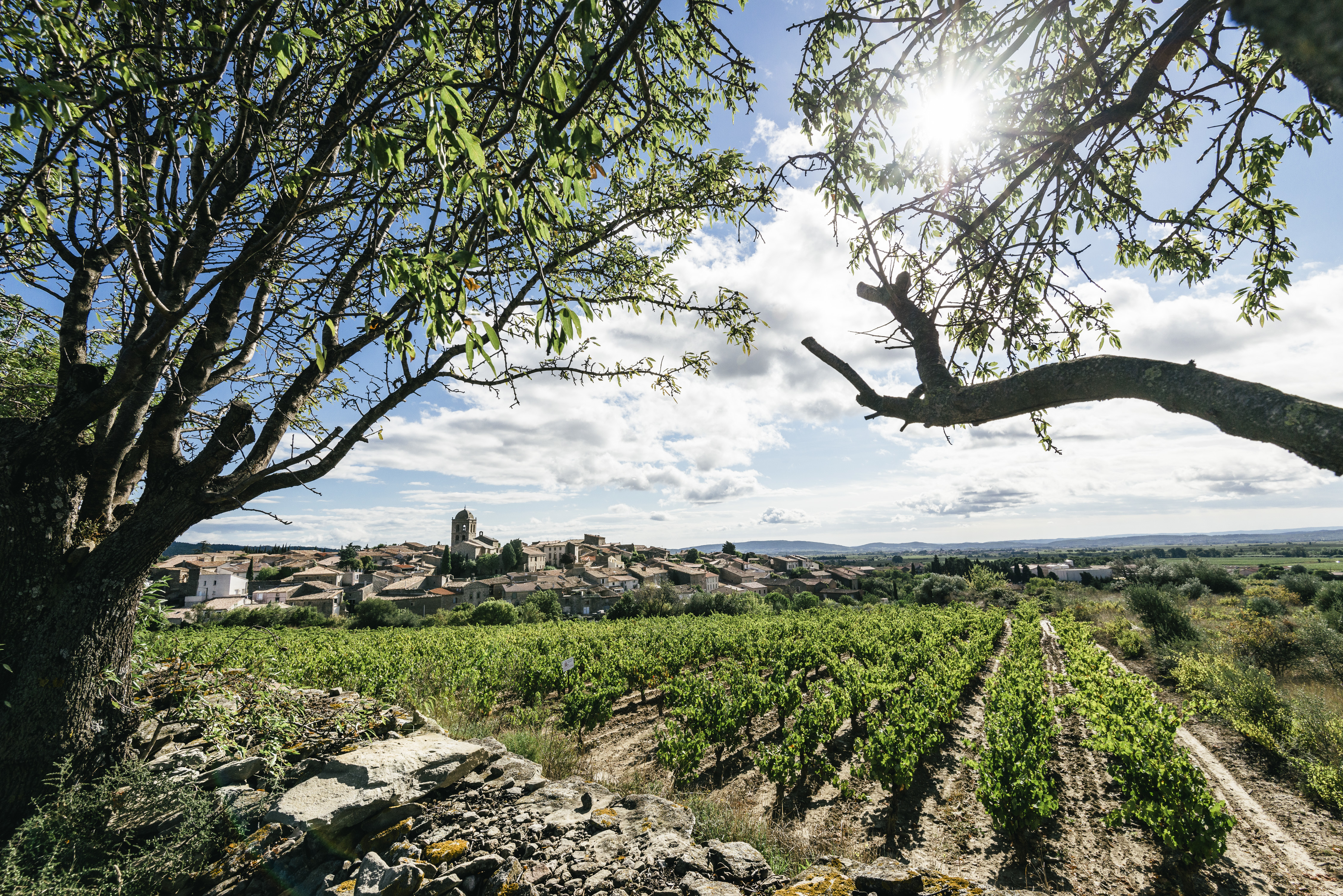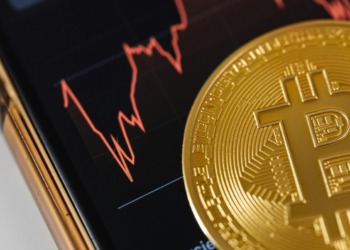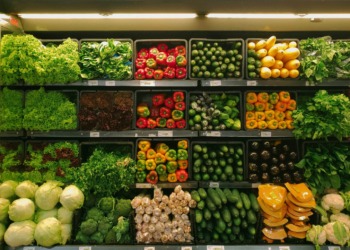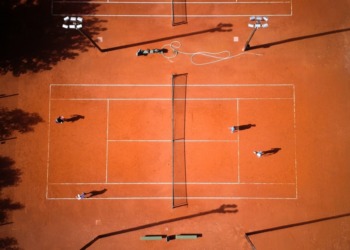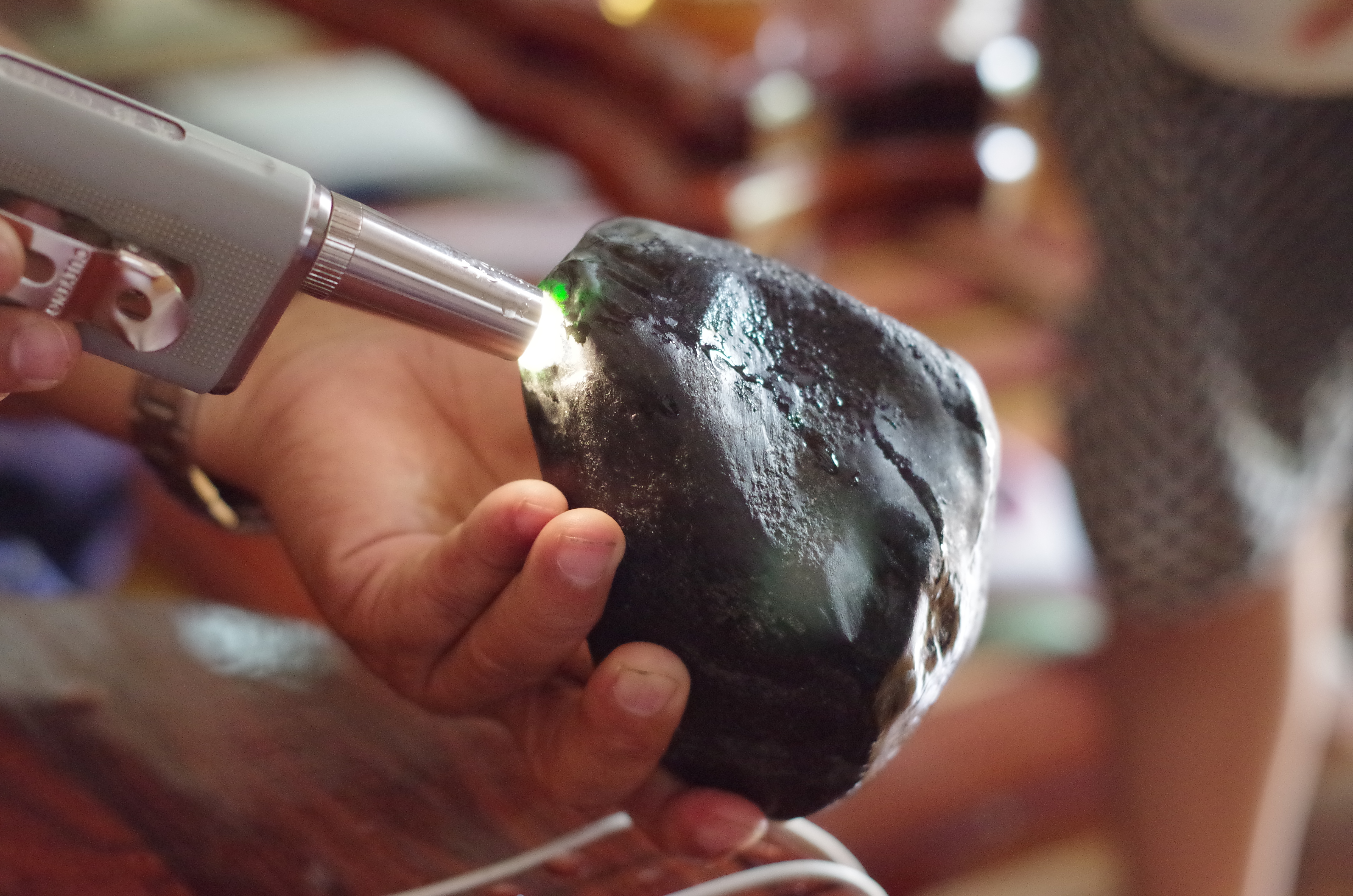Chateau Maris’s success was recognised in 2016 when it became the first winery in Europe to achieve Certified B Corporation status, and ever since establishing Chateau Maris, Robert Eden and Kevin Parker have been committed to the incorporation of sustainable farming principles. Fortunately, we got the opportunity to talk to Robert Eden about Chateau Maris’s mission, that being, making great wines while protecting the environment. Here is how it went:
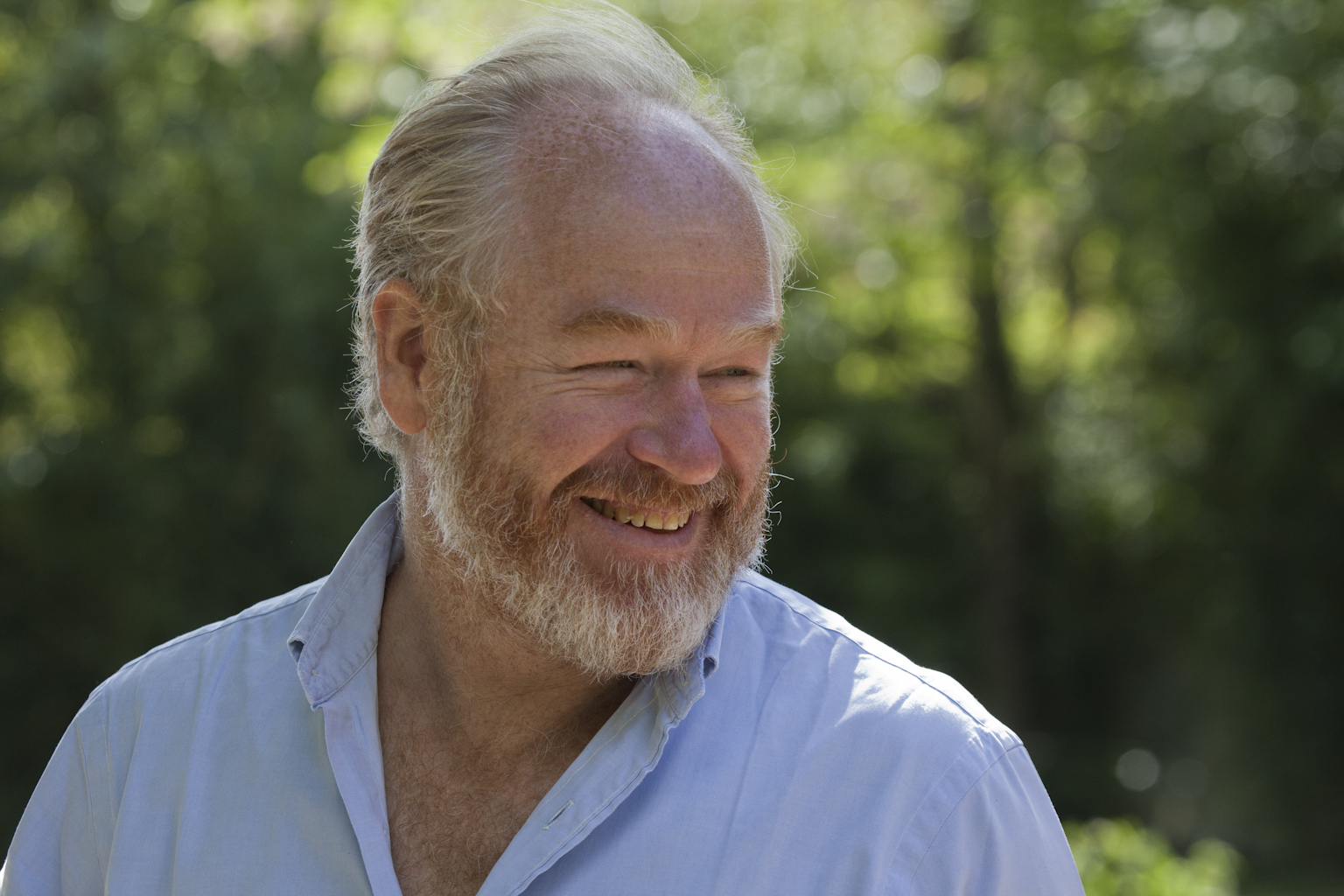
In the photo: Robert Eden Credit: Sabine Bernert
What is Chateau Maris?
Chateau Maris is a 50 hectares biodynamic wine estate in Languedoc region in the south of France, near the medieval city of Carcassone. We purchased this domain in 1997 and we discovered after the purchase that the vines were quite sick and the soil was dead because it had been pounded with chemical fertilizer and pesticides. The state of the farm itself was in a very bad condition. However, we then discovered the beauty in the soil, when it’s dead it can be rejuvenated. In healthy soil, 1 gram of soil can contain 6 -10 million of microorganism even species. So we set about bringing life back to the soil where vines would grow. We did this by using a lot of composting manure. We prepared the manure according to the biodynamic agriculture, using certain herbal preparation to stimulate the decomposition of the manure in the pile. So that’s how we came to Chateau Maris. Our sustainable practices came from the basis that we wanted to rejuvenate the dead soil. The effort to bring life back into the soil will stimulate further the self-protection property of the plant and help the plant to regain its bigger force to produce a healthy quality grape.
How does adopting biodynamic agriculture affect the quantity of your wine production?
We produce 200 thousand bottles of wine a year. It’s a bit hard to compare if we can produce more wine than the conventional wine agriculture that uses a lot chemical. In France, the wine industry is mostly made up of a patchwork of small farmers. However, there are some producers that produce 20 million bottles and there are others that produce 10 thousand bottles. Chateau Maris can be considered as small to medium size family property.
Apart from biodynamic agriculture, what are the other sustainability practices that Chateau Maris adopts?
Firstly, we tried to rejuvenate the soil by implementing biodynamic agriculture. We did a test by leaving two piles of manure side by side from the same origin; one of them is with biodynamic preparation and the other one we just left there to be organically decomposed. Three years in a row, during this test, we found that composed pile that was infused with biodynamic preparation was much more potent fertilizer. It has more microorganisms per unit so it’s generally a much better fertilizer. This encourages us to see further how biodynamic can help us to do more within the vineyard. It leads us to understand the plant as a species equal to us, we no longer try to dominate it but instead we try work together with the vegetal world. This led us to understand the whole experience of farming in vineyard biodynamically, not just looking after the soil but also looking all that is around which is the ecosystem in Languedoc. For example, we got a space of an untouched ecosystem, totally wild and left in nature, thousands of hectares of it next to our vineyard.
We also decided to build a sustainable cellar where we transform our grape into wine. We built our cellar out of vegetable material as we want to have a neutral space. We believe that the grape itself has its own energy, it is very intimately cyclical plant linked to the energy cycle which is going on around the planet within the universe. We want to capture as much of that as possible undisturbed, so we decided to build our wine cellar out of hemp-lime brick supported by a wooden structure. This is a very important carbon sink because it uses woods which capture and store carbon. It also uses the straw of hemp to make the bricks. These bricks are alive and they breathe, they are absorbing CO2 from the atmosphere. The hemp plant grows quickly; it does not need fertilizer, so it is good for the soil. It also consumes CO2 and put carbon back into the soil. This building, in the end, consumes a lot of carbon probably about 15 to 20 tons of carbon a year. It is a neutral energy space that we use to process grape in order to make quality wine.
What does sustainability mean to you?
Sustainability for us is respecting all lives that surround us and trying to be more aware of that. Being aware of it also means to be a part of it. We become part of what surrounds us rather than trampling over it, treating it badly or ignoring it. If we aware of it, it will be easier to respect it. By respecting life around you, both animal and vegetable, it will make your environment a better place.
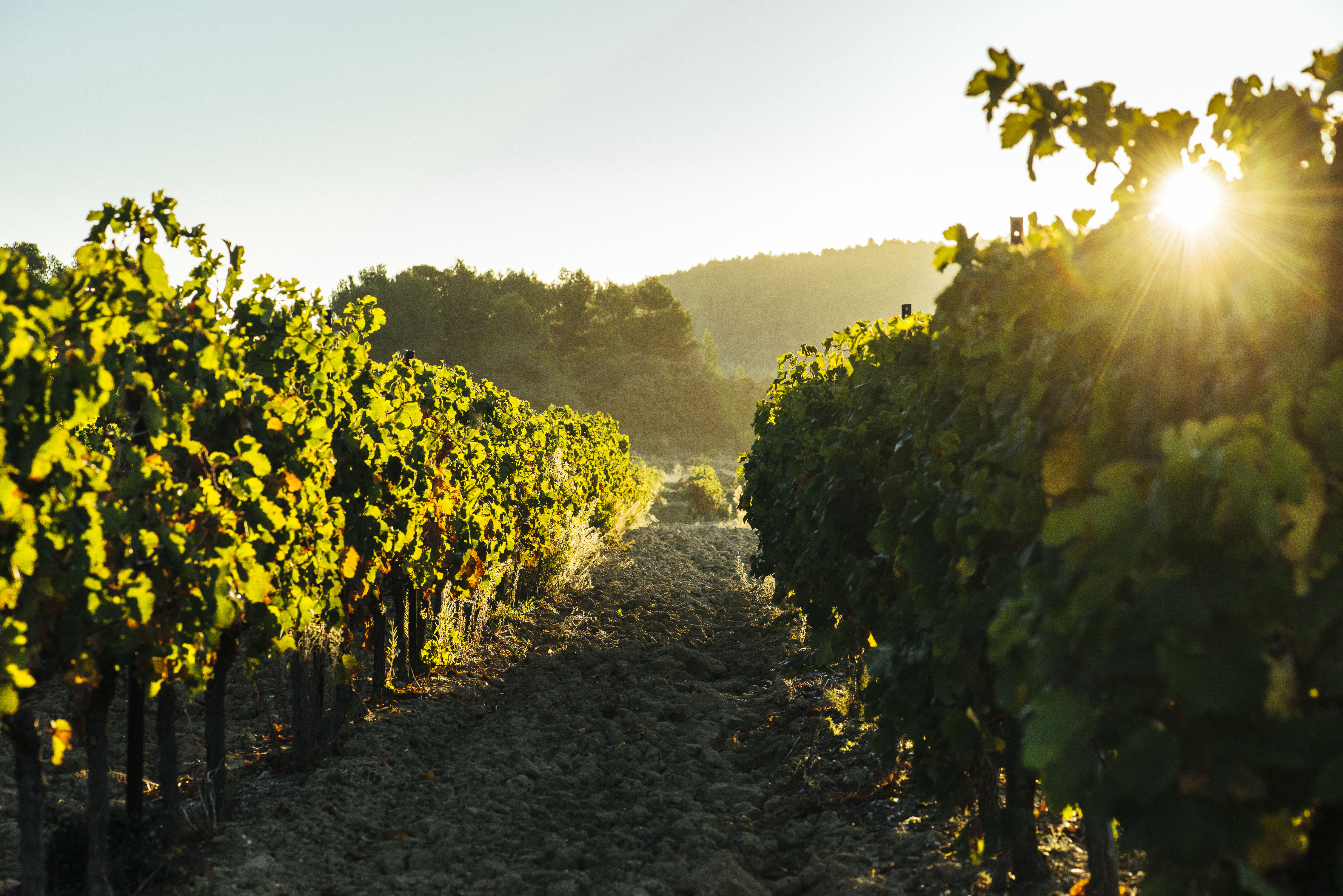 Credit: Ludovic Charles
Credit: Ludovic Charles
When did you become a B Corp company and how was the process?
We obtain the certification at the end of 2016. We’re a small team of about 12 permanent salary people who work here on daily basis. There are a lot more people during harvest period who are usually part-time workers. We just realize that we’re achieving a lot by doing the work together. Many people have been working here for 15 or 20 years. However, we realize how the method that we’re using can actually change our life, it can change the way we see the children, the cars we drive, the land we use, and the food we eat. We decided to go a little further in this aspect to look at ourselves and we realize what is lacking within our business and company. B Corp is a great roadmap in order to entice us and encourage us to take steps within our company to open up more to social and environmental aspects. It also allows us to put in place certain management tools so we become more precise and more accurate in achieving our goals. These are the two aspects that really attracted us to be B Corp certified and we’re enjoying it a lot. It opens up many doors that we didn’t know was there.
As for the process to obtain the B Corp certification, you shouldn’t be daunted by the fact that some of those aspects are not what you’re doing today. The whole point is to encourage you to do it tomorrow, this is what we did. It was a methodical process. We actually got a student from HEC in Paris to help us out. We found that we have got so far but we needed external encouragement. That was very helpful to translate the request of B Corp and see the alternative that we could take in order to achieve the goals.
How did you adjust your business model or supply chain in order to meet the standard of B Corp?
You must know a lot about where you’re getting your product from. We’re very specific about that. It really helps that in the wine world, there are already a lot of standards in place because we’re producing consumable goods, and the companies that are supplying you have standards as well. Also, the French employment laws also give a bare amount of respect for attention to the salary person. So, from the social point of view, France itself as a whole is very well structured as a base.
Furthermore, everything that we use in our product, such as the glass, the label, and the carton, we had already requested the details of where they come from. And because we’re biodynamic, a lot of our stuff is recycled anyway. So we’re already quite far away down as far as our supply chain is concerned. It is definitely about looking after the people, planet, and profit.
How do you monitor the supply chain when you export your product overseas?
We mainly export our wine and our largest market is the East Coast of the United States. On the East Coast, there’s really good transportation system. Goods are transported by boats and they can be transported efficiently with low CO2 emissions. We have a very efficient market to be in, it is ecological despite being an export market. It has actually less road transport to deliver your wine to Manhattan than to deliver your wine in Europe.
We also try to monitor the whole process as much as possible to make sure it is sustainable, just like how we try to understand the effect of the planetary movement may have on the growth of our plants and when is the best time to be working with them so they can incorporate in the best possible way whatever treatment you’re giving them. It is the same level of awareness that we work on in monitoring where our wine is going and what kind of impact that we have on the environment. As much as people would like to drink our wine, I don’t want to fly it to Buenos Aires every day because that won’t be a good solution.
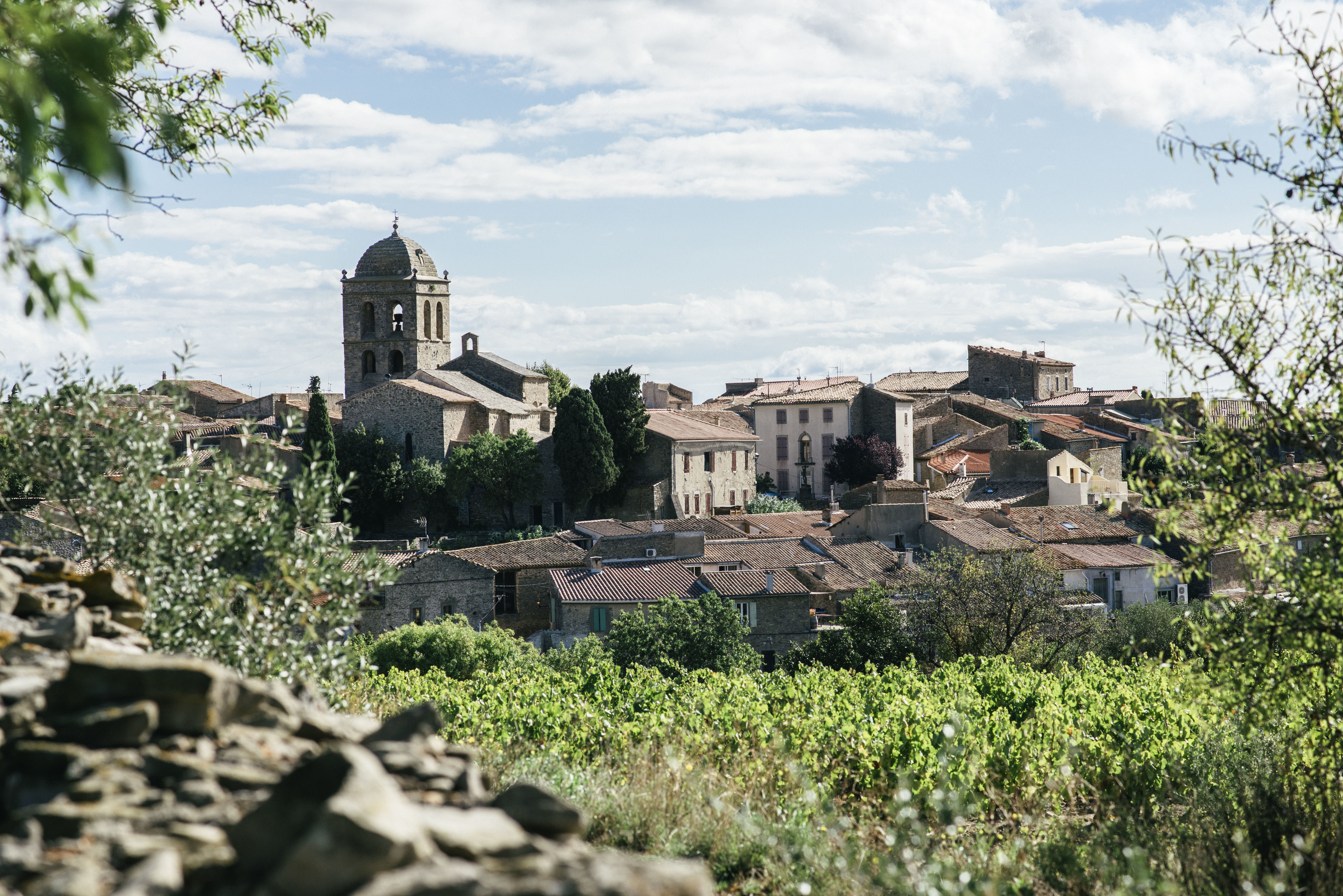 Credit: Ludovic Charles
Credit: Ludovic Charles
Do you also try to only work with logistic operators who commit to reducing their CO2 emissions?
Absolutely. We’re constantly looking for an operator with a business model that has the same holistic approach as we do. One of the things we are just starting to learn about B Corp is that there are actually groups of people out there who do a similar thing to us. We feel very encouraged that there are other companies that have the same understanding of developing a better knowledge of impact and how to monitor our impact on our surroundings. The fact that you’re working with a company that pursues that progress on annual basis through B Corp means you’re very aligned with what is happening today. This is one of the positive things about having B Corp structure around you.
What can Chateau Maris do to bring more positive impact to the French wine industry?
Actually, there are already a lot of wineries which are very conscious of sustainability approach in Europe. However, I think the current movement in Europe is more on the supply chain aspect than on the farming aspect or the soil aspect. While there are some standards that the wine industry can conform to, there is definitely a lot more that could be done; it is unlike the way that B Corp gets in the fine details of sustainability. I think the most important thing is to lead by example. I think what Chateau Maris can do is to continue doing our sustainable practices and to continue making good quality wine that people want to drink and people can afford to drink.
In addition, the most important thing that we can share today which is perhaps lacking in the wine industry is soil cover. People care less about soil. Let’s work together and find the best cover crops that we should be growing together in all regions. These cover crops will encourage CO2 capture and store carbon back into the soil, therefore it will also improve the humidity retention of the soil and it actually helps more microorganisms to grow in the soil as well. By growing covers crop we can help the soil to retain its life. What we’re trying to do in Chateau Maris is encouraging more people to grow cover crops by showing how our permanent cover crops could benefit the ecosystem in general
How do the UN SDG’s play into your business model?
I think we’re really aligned with the UN SDG’s. Not only do we care about the environment, we also care about the social aspect. We realize how important it is to be a part of the community. One of the ladies that work here teaches English 2 hours per month at a local school. Another lady helps the old people at a retirement house. We’re always trying to develop a relationship that is not strictly commercial. We want to be part of the community and to give a little bit to the community. It is a great way to connect us with the community and to be more open with what is around us.


